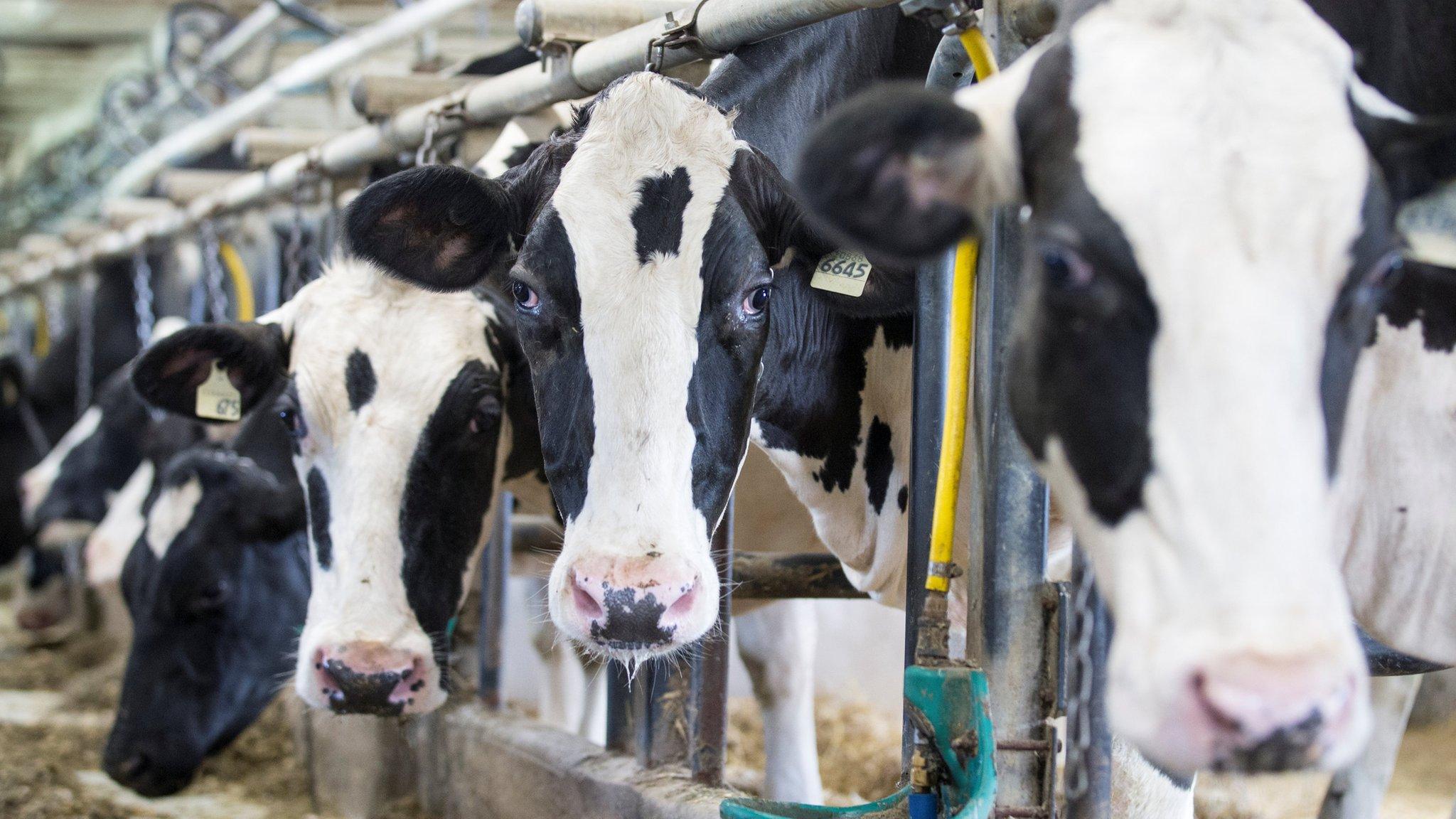Climate change: We challenged three people to transform their daily habits
- Published
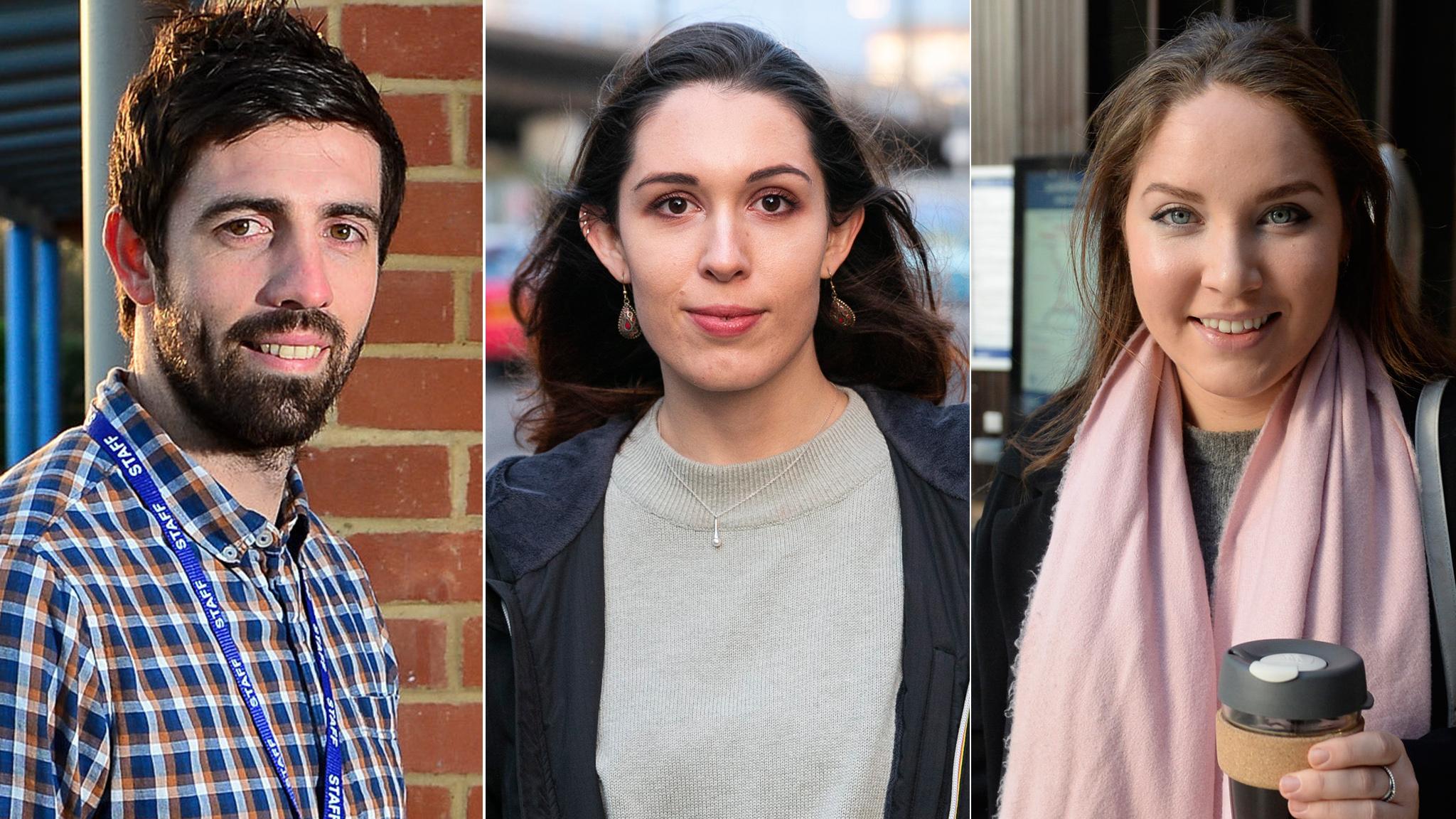
Buy less meat and dairy. Walk, don't drive. Dry laundry on a rack.
They're all things we're told could help save the planet. But how far are any of us prepared to go? And what's stopping us from doing more?
We challenged three people to spend one week making as many changes as possible to live a greener life. Here's how they got on.
Charlotte Cumming
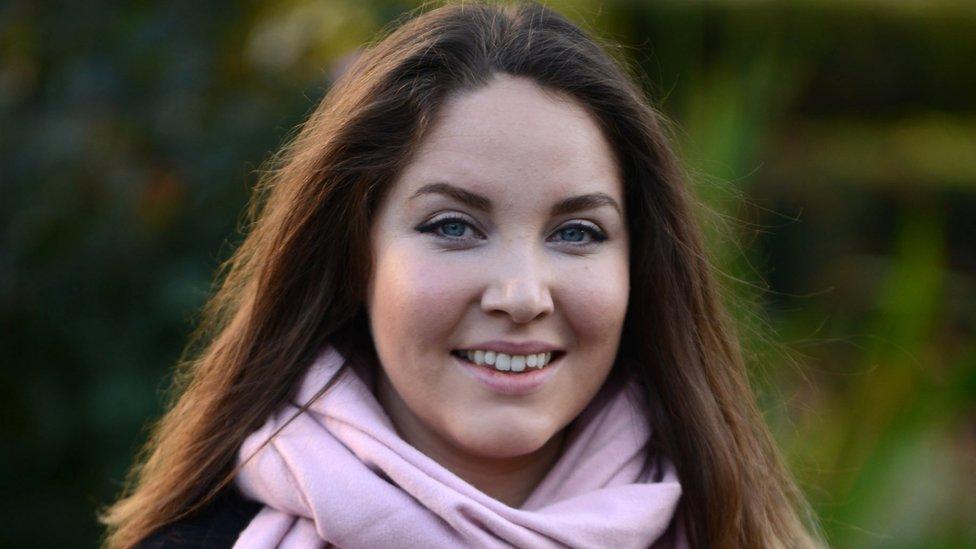
About: I'm a 25-year-old senior associate at a consultancy firm, who lives wherever my latest project is. Home is Fife but for the time being I'm living and working in Glasgow, which means I can get everywhere on foot. I like to cook from scratch and socialise with friends and my team.
My week: I made a really conscious effort not to buy any meat or fish. Buying vegetarian or vegan food was not particularly tough but eating out was trickier when it looked so tempting - and I did eat a prawn curry at a restaurant.
Avoiding cow's milk was not hard - I already drink soy milk, prefer my coffee black and recently discovered chocolate oat milk. I tried vegan parmesan for the first time, and was pleasantly surprised that it tasted like the real thing and even melts.
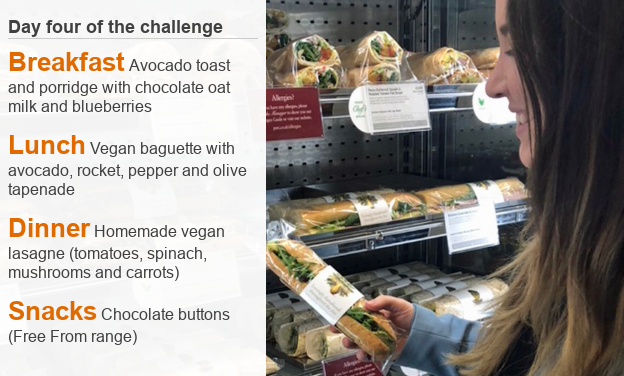
I tried not to throw anything away (I froze spinach before it went off) and bought loose vegetables instead of pre-packaged bags.
My biggest shift was checking where food was from. One day my blueberries were from Perth, Scotland, the next, from Peru. Yet both packets suggested they were produced locally. Even my "seasonal" butternut squash was from Spain.
Once I started spending a few seconds (and that really is all it takes) checking the source, I felt more inclined to pick local.
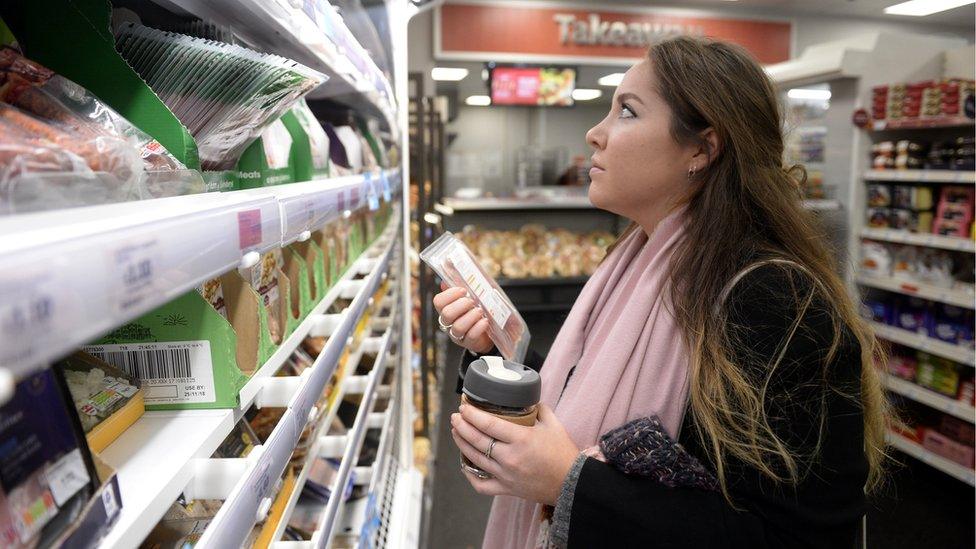
I watched documentaries including Mission Blue and Cowspiracy [about marine conservation and intensive farming, respectively], and started following Zanna Van Dijk and The Happy Pear [environmental/fitness and vegetarian/lifestyle bloggers] online for inspiration and information.
My friends and I discussed how social media could inspire but also make you feel so far off the end goal - you've just bought a coffee in a reusable cup, then you read about fast-fashion and think: "God, I've just bought this T-shirt."
I spoke to my consultant colleagues, who are in and out of hotels, about leaving big plastic bottles of toiletries in their office locker or at hotels over weekends to avoid buying mini ones each week.
One told me how they can't recycle takeaway food packaging in hotels, so bring it to work to put in office recycling bins.
In Glasgow, I walk everywhere but, in the past, my job has involved driving, flying, getting a train and a bus just to get to the office. Where possible though, we do use video conferencing with colleagues and clients.
What I learned:
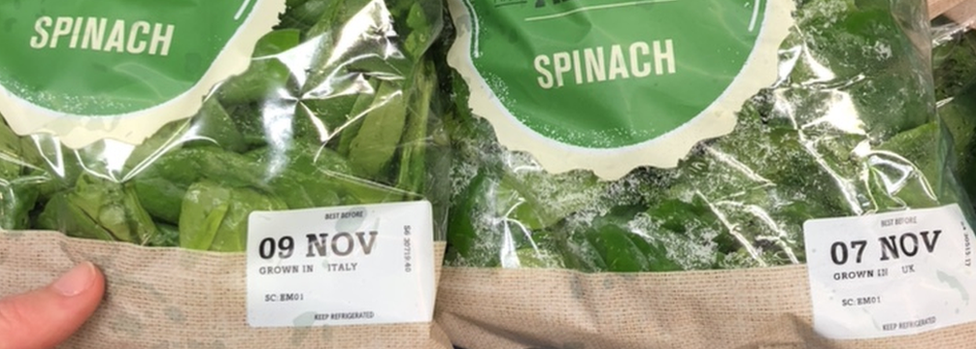
Spot the difference? One pack's grown in Italy, the other in the UK
Look at the labels - is it grown locally?
Buy minimal, responsibly-sourced meat from the meat counter (less plastic packaging)
Take baby steps to inform yourself
Try vegan cheese - with an open mind
Top tip: Buy a reusable coffee cup, water bottle and Tupperware - and actually use them.

Claudia Neuray
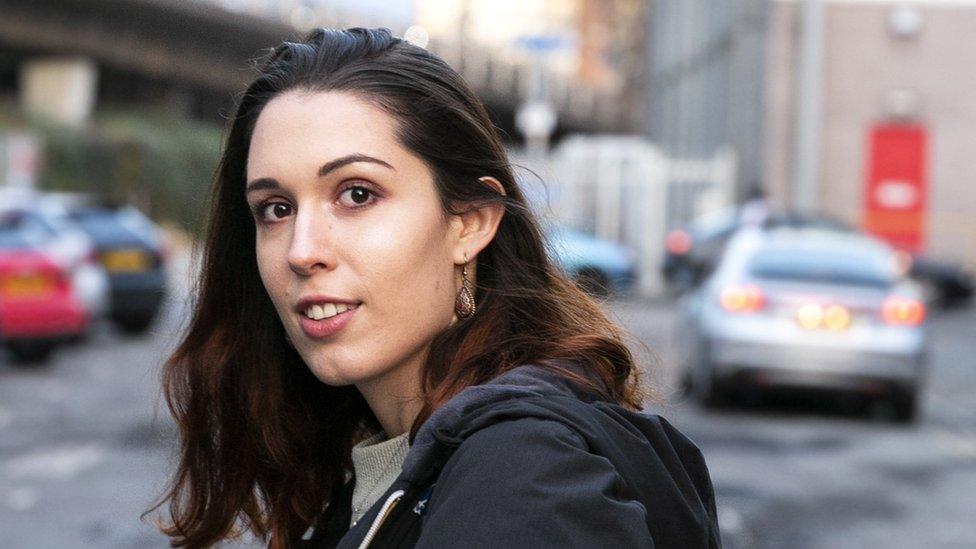
About: I'm a healthy history student who hits the gym four times a week and eats eggs and chicken to keep up my protein levels. I mainly travel around Manchester by bus or foot, and share a house - but not usually meals - with my flatmates. I'm 20, and grew up in a nature-loving family in Belgium where food was never thrown away and leftovers were always for tomorrow.
My week: Living in the UK - where everything is easily available and students live in houses where rent includes bills - means people leave taps on, lights on and put the heating up as high as they want. It's a problem.
Every day I turned the heating off or down to 18C. I also bought insulating tape to block out draughts in my bedroom. I made a conscious effort to have shorter showers and use less dishwater.
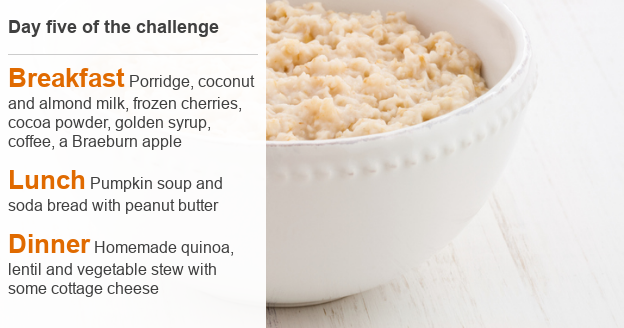
I swapped bananas for stewed UK-grown pears on my breakfast, and bought soya milk for the first time in my life - but I wasn't convinced. Cow's milk just tastes better and we always buy milk communally for the flat.
One night I made a vegan stew for my flatmates - all the vegetables were UK-grown except the butter beans and lentils. I'd never cooked for them all before and was scared I'd bottle it. But they all really liked it.
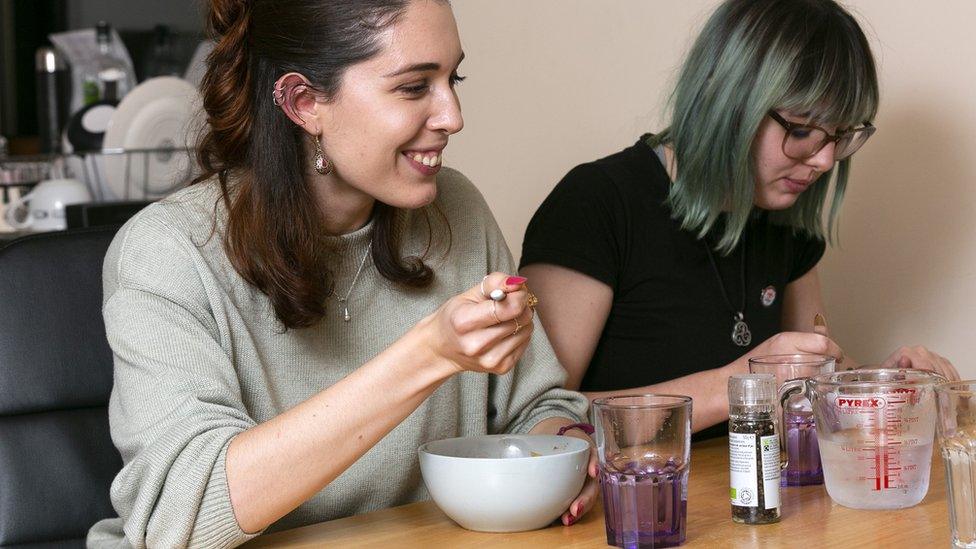
I tried, unsuccessfully, to find a more environmentally-friendly shampoo, but they're £6-7, and I'd usually spend £3.
But I did invest £20 in a menstrual cup to cut down on waste and save money (a woman spends an average £4,800 on period products in her lifetime, according to the charity Bloody Good Period). My flatmates thought it a bit gross but I found it was just as good once I got used to it.
What I learned:
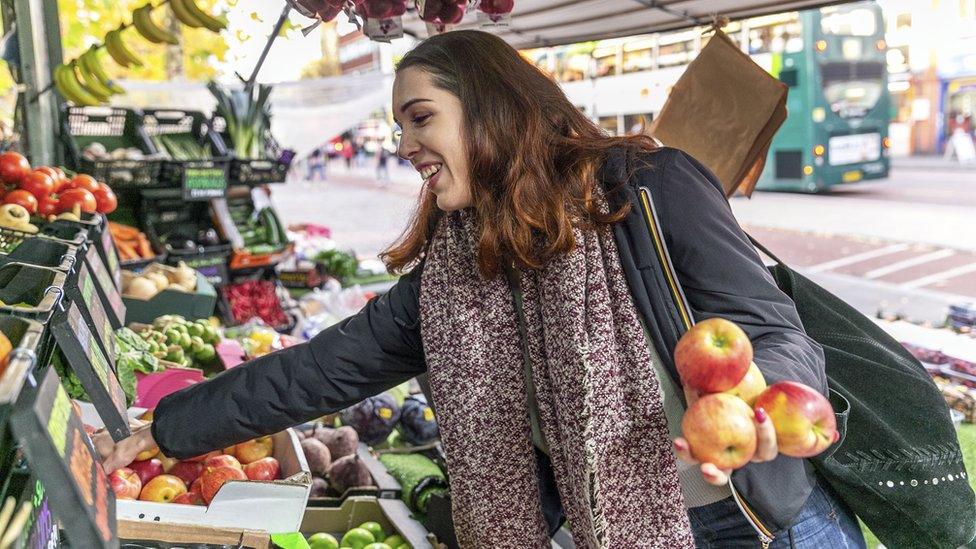
It only takes three or four days before it becomes automatic to think: buy loose, buy British and take your own bag
Food is ridiculously over-packaged. I think it's a British thing to wrap fruit in plastic and cardboard - you wouldn't see it in Belgium
Don't put the heating on, put a jumper on
To my surprise, I've become pretty much vegetarian since the challenge - I don't even buy chicken any more
Top tip: Prepare meals at the start of the week to reduce plastic and food waste - and save money.

Andy Harris

About: I'm a 31-year-old primary school teacher living in Bicester, Oxfordshire, with my partner and 18-month-old boy. Since my son's birth, I'm giving more thought to the sort of world he - and my class of nine and 10-year-olds - will grow up in.
My week: At home, I made lots of small, simple changes which quickly became routine. My son wears disposable nappies which we usually put in a plastic nappy bag before binning. Instead, we only bagged up soiled nappies.
Instead of a deep bath, we gave my little boy a shower over the bath with a plug in, using less water and he still got to splash around and play with his ducks. He loved that.
I like my dairy and meat too much to have made any dietary changes - and my son is struggling to eat at the moment, so we carried on as normal with food. However, I did take leftovers from the previous night's dinner to work in Tupperware.
I turned off the tap when I was brushing my teeth - or brushed them while in the shower.
I monitored the heating, which was rarely above 15C (our semi-detached is well-insulated) and charged my mobile phone before bedtime so it wasn't charging through the night.

In the classroom, I talked about the changes I was making in my life and asked each of the children to make one change at home. Theirs included turning the light off when they left a room; using a torch or fairy lights to read by at bedtime; using reusable water bottles, and turning the TV off at the switch.
About 80% stuck to it for the whole week, and I felt proud and humbled they'd come on board.
Change has a ripple effect - as a teacher you can influence 30 children, who then might influence 60 adults.
At nine and 10, children are really positive, empathetic and absorb everything, like sponges. Next term, I plan to talk to them about energy and climate change in science lessons.
What I learned: We are a throwaway society. We don't mend things any more nor realise quite how much we waste. We should think very carefully about what we use, why we use it and its impact on the environment and the world.
Top tip: Charge your phone on airplane mode well before bedtime (it only takes an hour and reduces any fire risk).

To find out the climate impact of what you eat and drink, choose from one of the 34 items in our calculator and pick how often you have it.
All figures for each food in the calculator are global averages. If you cannot view the food calculator, click to launch the interactive content, external.
Design by Prina Shah, development by Felix Stephenson and Becky Rush.
All pictures subject to copyright
- Published8 October 2018
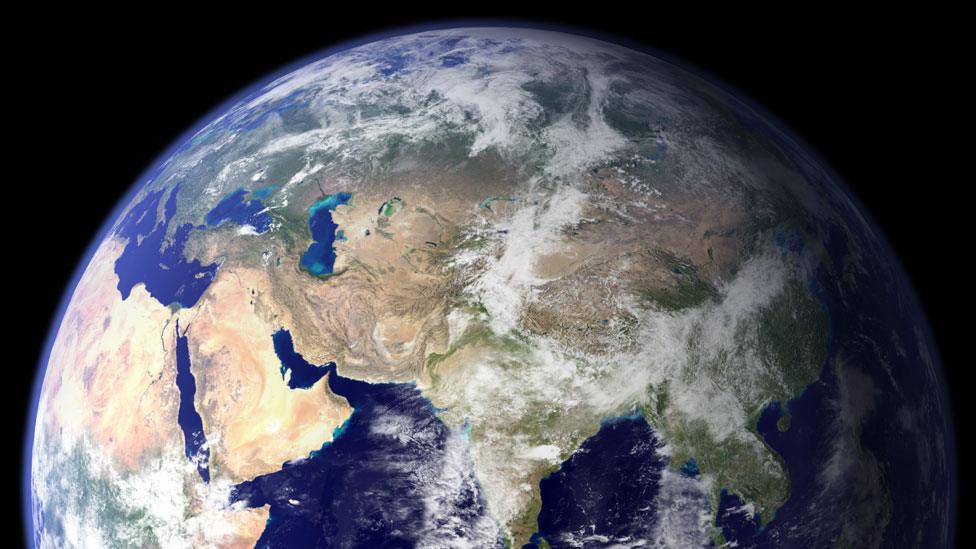
- Published9 March 2018
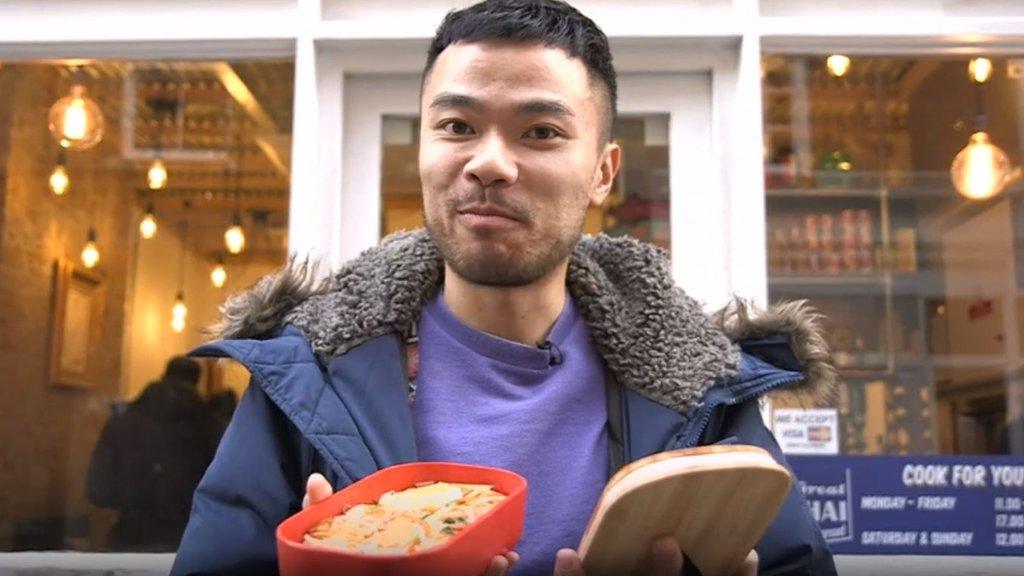
- Published25 October 2018
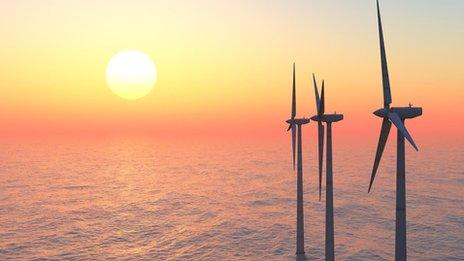
- Published11 September 2018
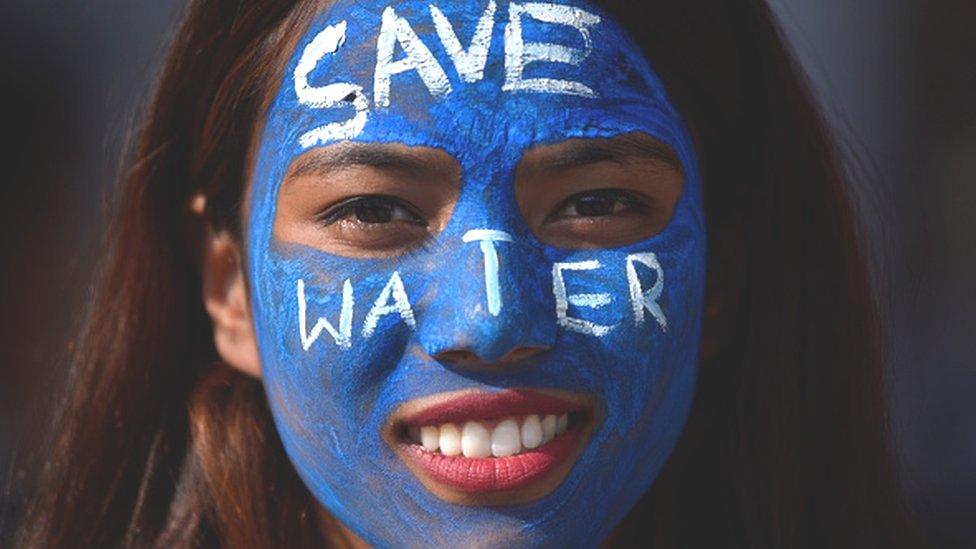
- Published8 October 2018
